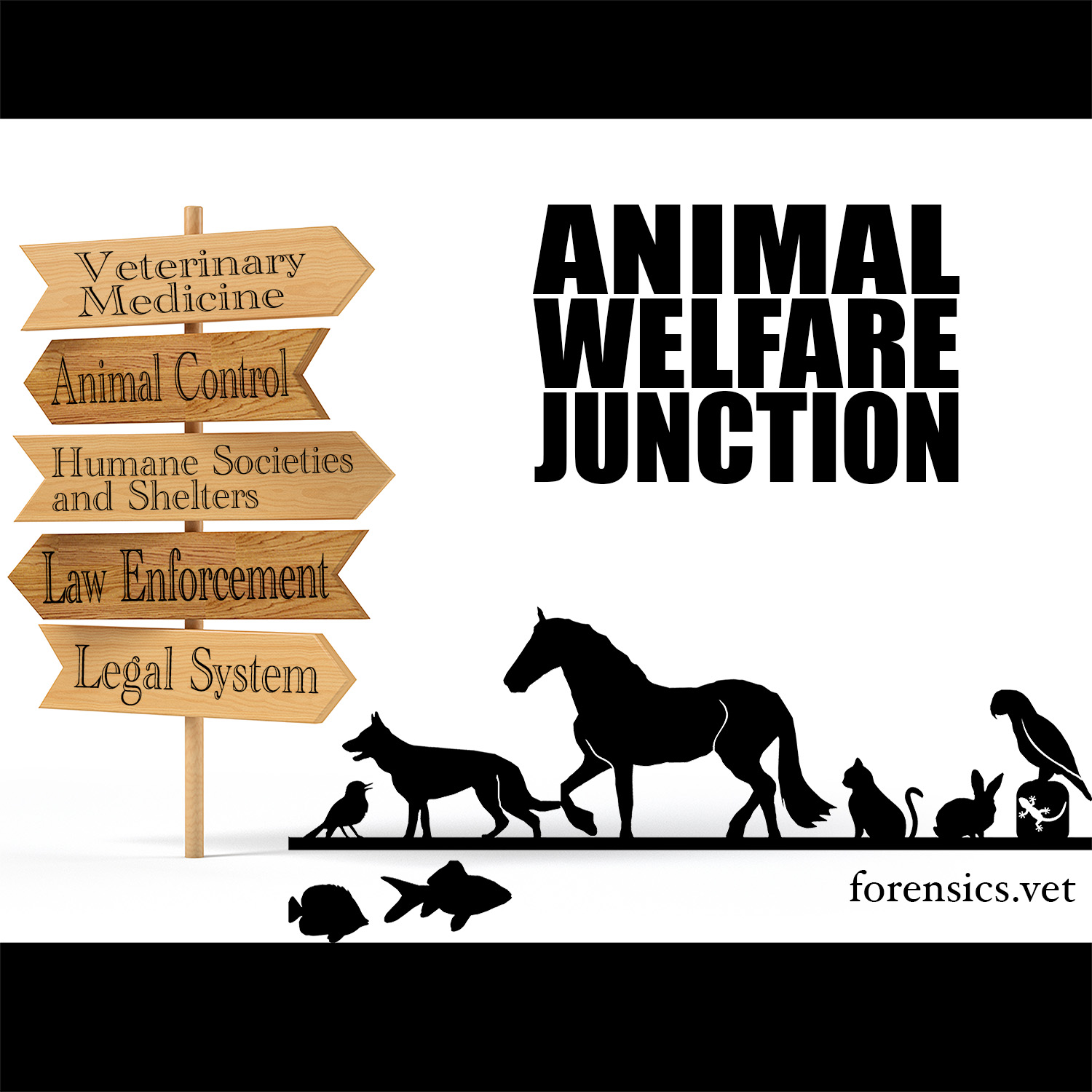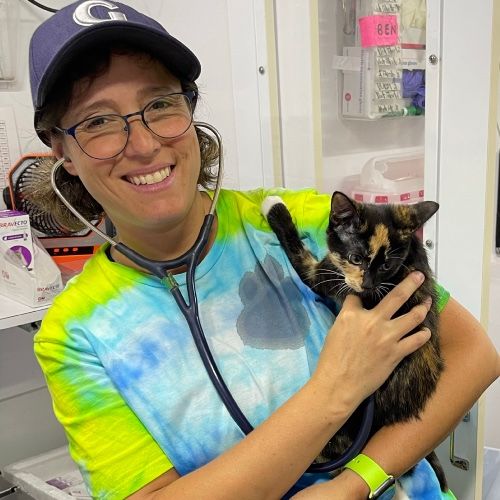Animal ForensiCon 2025: Internet investigations with Jacob Lloyd
Can the internet be a resource for criminal investigations? Jacob Lloyd, from the Animal Welfare Investigations Project, shares with us do’s and don’ts of internet searching in animal crimes.
The 2025 Animal ForensiCon: The Animal Forensic Investigations Conference is a three-day event, offered in Daytona Beach Shores, Florida from May 7th to 9th, 2025. The conference is hosted by the University of Florida’s Veterinary Forensic Sciences Laboratory.
ForensiCon offers workshops and educational sessions on a wide variety of topics pertaining to criminal investigations, law, small animal investigations, equine and livestock investigations, and wildlife crimes. This conference is open to anyone interested in animal forensic investigations. Attendees will also have the opportunity to network with faculty, experts, and investigators
Transcript
All right, so the last presentation for day two is Jacob
2
:Lloyd, who was talking about using
the internet for your investigations.
3
:So thank you for being here.
4
:Jacob Lloyd: Yeah,
thank you for having me.
5
:DrG: So before we go into, into your
topic, can you let our audience know
6
:who you are and you know what you do?
7
:Jacob Lloyd: Yeah.
8
:So, um, I'm the executive director of the
Animal Welfare Investigations Project.
9
:So we're an NGO that investigates
organized, animal crimes.
10
:So everything from dog fighting to,
to puppy farming to wildlife crime,
11
:you name it, we investigate it.
12
:Um, been involved in covert
investigations, particularly using
13
:the internet for the last 12 years.
14
:Um, yeah, that's me.
15
:DrG: So you're, you're chat was basically
about how to use the internet and
16
:how to use things like social media
and that kind of stuff to learn, so
17
:can you run us through the process?
18
:Jacob Lloyd: Yeah.
19
:Um, so, so with internet investigations,
what, what you really wanna do, I is split
20
:it into several processes if you like.
21
:So you're looking at data collection,
um, analysis, and then the reporting,
22
:or, what, whatever that product
right end product's gonna be.
23
:Right?
24
:Um, and, and then in terms of that
process, the way you can go through
25
:it with data collection, it's
about using, ethical, transparent
26
:techniques and tactics to collect
that information from the internet.
27
:And then you're gonna analyze
it, you're gonna grade it, you're
28
:gonna look at the provenance of it.
29
:Um, and then you can produce some
form of product, whether that's, you
30
:know, to support an application for
a search warrant, or whether that's
31
:to produce in a criminal trial.
32
:DrG: So one thing is like, there are
a lot of people that go out there and
33
:try to do their own investigations,
and I know like even like pulling,
34
:have you seen that kind of stuff?
35
:Jacob Lloyd: Don't fuck with cats.
36
:DrG: Yeah, exactly.
37
:Exactly.
38
:So how safe is it for people to
use their own personal social
39
:media to do these things?
40
:Jacob Lloyd: Yeah, I, I
wouldn't recommend it.
41
:I, I think especially in, in
a professional setting, go,
42
:go seek out that training.
43
:There are free resources.
44
:We offer free training to law enforcement
agencies and humane societies and so on,
45
:across the United States and globally.
46
:Um, so, so reach out to those
resources and, and we can support you
47
:in building those covert accounts or
whatever in terms of the training.
48
:I think, you know, if, if you're
just an interested crime geek, and
49
:maybe you are researching somebody,
get on YouTube, there's, there's
50
:a lot of resources on there.
51
:But, um, yeah, just be mindful that, you
know, the internet works both ways, right?
52
:DrG: Yeah.
53
:And there are people that think that
there are some, some things that are
54
:really private and that nobody will
know what you're ever talking about.
55
:But that's kind of not true, right?
56
:Jacob Lloyd: Absolutely not true.
57
:Uh, especially here in the United States.
58
:That there's a lot of data out there.
59
:Your data is being sold, transferred.
60
:I I I always say that, if you download
something like a free game, uh,
61
:free game app, you are, the product.
62
:Nothing's free.
63
:So you opt into that,
that privacy policy, boom.
64
:You are being traded, so
yeah, you're not safe.
65
:DrG: Yeah.
66
:Because I mean, they're getting
your information and then.
67
:So much ads and so many commercials,
and you start seeing some things
68
:that are like tailored to you.
69
:Absolutely.
70
:And it's like, how do they know?
71
:Jacob Lloyd: Yeah.
72
:And, and, and that all comes back
down to the fact that you become,
73
:that, that product, it all comes down
to it because the moment you're opt
74
:into that privacy policy, they're
tracking even where you are clicking.
75
:You know, they're
tracking your interaction.
76
:How much time you are spending,
and so on and so forth, right?
77
:You look at loyalty schemes.
78
:You go into Walmart, what, whatever
store that you want to, you wanna
79
:reference, and you have a loyalty card.
80
:Well, now I know what you, you
spend your money on, right?
81
:It's powerful data, um,
that can be bought and sold.
82
:DrG: As far as investigators, this is
a really good tool for them to use.
83
:Where can they get more information?
84
:You mentioned that there are
like training information, like
85
:how can, like, can people reach
out to you for, for assistance?
86
:Jacob Lloyd: Yeah.
87
:Yeah.
88
:Fi find me on LinkedIn.
89
:Jacob Lloyd and I work for
Investigations Project.
90
:Find me on LinkedIn.
91
:Um, you can also email
me jLloyd@awp.org.uk.
92
:So reach out to me, um, and I'm more than
happy to point you in the right direction.
93
:For law enforcement, there are actually
free training resources both offered by
94
:us, but also through the National White
Crime Collar Center, um, here in the U.S.
95
:which is all run by ex law enforcement.
96
:That's more catered for general crimes,
and then we tailor our for animal crimes.
97
:DrG: Fantastic.
98
:Well thank you so much for being here.
99
:and thank you for what you do.
100
:Jacob Lloyd: Thank you so much.

